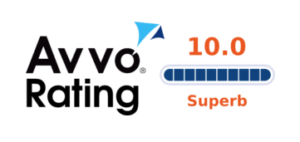



Choosing Representation For A New York Life Denial
 In the vast world of insurance, New York Life stands out as a model of dependability and trustworthiness. Its legacy has been seamlessly integrated into America’s financial tapestry since its inception in 1845. However, as with many insurance behemoths, it is riddled with complexities, particularly in the realm of disability. Understanding the complexities of New York Life denials with the help of a New York Denial Attorney is critical for those going through this process. While New York Life has been a stalwart in the insurance industry, with over $300 billion in assets under management, their foray into group disability insurance, particularly following the Cigna acquisition, has been a learning experience. Before this, their primary focus was on individual disability policies, which differ markedly from employer-provided disability coverage.
In the vast world of insurance, New York Life stands out as a model of dependability and trustworthiness. Its legacy has been seamlessly integrated into America’s financial tapestry since its inception in 1845. However, as with many insurance behemoths, it is riddled with complexities, particularly in the realm of disability. Understanding the complexities of New York Life denials with the help of a New York Denial Attorney is critical for those going through this process. While New York Life has been a stalwart in the insurance industry, with over $300 billion in assets under management, their foray into group disability insurance, particularly following the Cigna acquisition, has been a learning experience. Before this, their primary focus was on individual disability policies, which differ markedly from employer-provided disability coverage.
The Reality of New York Life Disability
The reputation of New York Life in handling disability is a tapestry of trust and challenges. Their $6.3 billion acquisition of Cigna’s disability income and life insurance division in December 2019 marked a significant expansion of their disability insurance services. This move not only cemented their position as a dominant player but also introduced a slew of policy complexities for claimants.
Common Reasons for New York Life Denials
It can be difficult to navigate a denial. Most of the time, the reasons are complex. One of the most common reasons claimants are denied is a lack of medical records or objective evidence supporting the disability. Claimants must ensure that their medical documentation is complete and unequivocal.
Disagreements between statements from the attending physician and assessments from peer reviews commissioned by the insurance company are another common pitfall. Such inconsistencies can cast doubt on the legitimacy, leading to denials.
Furthermore, policy exclusions or missed deadlines can result in denials. Claimants must be fully aware of their policy’s terms and conditions to meet all criteria and timelines.
Navigating the Denial Process
Every insurance policy is a complex document, laden with specific terms, conditions, and definitions. New York Life’s policies are no exception. The definition of disability, as outlined in their policies, can vary, making it essential for claimants to understand the nuances.
Receiving a denial letter can be a disheartening experience, but it’s essential not to lose hope. The first step is to obtain a comprehensive copy of the file. This file provides insights into the reasons for denial, allowing claimants to address specific concerns raised by New York Life.
It’s also crucial to differentiate between group and individual disability insurance policies. While individual policies offer more flexibility, group policies, especially those governed by ERISA, come with their own set of challenges and appeal processes.
The Appeal Process with New York Life
Filing an appeal against a denial is a meticulous process. For policies governed by ERISA, there’s a strict timeline to adhere to, making timely appeals paramount. Each stage of the appeal requires a unique strategy, with different laws applicable at each juncture.
For a successful appeal, claimants must address the specific reasons for denial highlighted by New York Life. This often involves gathering additional medical evidence, expert opinions, and sometimes vocational assessments to build a robust case.
Recent Trends and Changes in New York Life’s Disability
The insurance landscape is ever-evolving, and New York Life is no exception. With their acquisition of Cigna Group Insurance, there have been notable shifts in their handling processes. Claimants must stay abreast of these changes to ensure they’re well-prepared for any challenges that may arise.
Case Summary: NY LIFE Denies Disability Benefits After Paying for 12 Years
The case involves a client who worked as a director of leasing for over 20 years at a property company, earning a high salary. He suffered from severe gastrointestinal issues, including ulcerative colitis, chronic pouchitis, and cuffitis, which led to the removal of his large intestine and colon. These conditions caused chronic irritable bowel syndrome (IBS), resulting in frequent bathroom visits (8–18 times daily) and significant pain, rendering him unable to work. He filed a long-term disability claim with Life Insurance Company of North America (LINA), later administered by New York Life, and was approved for benefits for 12 years, with a monthly benefit of $12,000 plus cost-of-living adjustments. His claim was also approved by Social Security for disability benefits.
Read Full Case Summary Here...
The case involves a client who worked as a director of leasing for over 20 years at a property company, earning a high salary. He suffered from severe gastrointestinal issues, including ulcerative colitis, chronic pouchitis, and cuffitis, which led to the removal of his large intestine and colon. These conditions caused chronic irritable bowel syndrome (IBS), resulting in frequent bathroom visits (8–18 times daily) and significant pain, rendering him unable to work. He filed a long-term disability claim with Life Insurance Company of North America (LINA), later administered by New York Life, and was approved for benefits for 12 years, with a monthly benefit of $12,000 plus cost-of-living adjustments. His claim was also approved by Social Security for disability benefits.
After New York Life acquired LINA’s business, they sent the client for an Independent Medical Examination (IME) rather than reviewing his extensive medical history. The IME, conducted in a substandard facility by a doctor who spent only five minutes with the client, concluded he could work if near a bathroom, citing OSHA standards that allow for a bathroom within a certain distance (e.g., 3/4 of a mile). The doctor’s report ignored the client’s need for frequent, prolonged bathroom visits and a hygienic environment due to his medical pouch. Based on this report, New York Life denied his benefits, despite his own-occupation policy requiring him to perform field work, which was incompatible with his condition.
Attorney Alexander Palamara and his team appealed the denial, compiling a comprehensive case that included:
- Updated statements from three treating providers, using customized attending physician forms tailored to the client’s specific limitations, strongly supporting his disability.
- A vocational consultant’s report, which reviewed the client’s job requirements and the national economy standards for a director of leasing, confirming he could not perform his own occupation or any occupation due to his need to be out in the field and his frequent bathroom emergencies.
- Detailed arguments highlighting the flaws in the IME doctor’s report, particularly its failure to address the client’s inability to work due to 50 days annually where he cannot leave his home because of severe symptoms.
The appeal was submitted with faxed and mailed medical records, and within approximately two weeks (less than 35 days total), New York Life’s appeals department overturned the denial without commissioning a new peer review report. The rapid reversal suggests the overwhelming evidence presented exposed the inadequacy of the IME-based denial. The client’s benefits were reinstated, with payments expected shortly after the decision, just in time for Christmas.
The attorneys criticized New York Life’s reliance on a poorly conducted IME and their apparent practice of prioritizing paid IME doctors’ opinions over treating providers’ evidence. They noted that claims handlers often fail to consult treating doctors or consider independent evaluations, possibly due to training or workload. This case underscores the vulnerability of long-term claimants, as even after 12 years, benefits can be abruptly denied. The success of the appeal highlights the importance of a well-crafted appeal with robust medical and vocational evidence to counter flawed insurance company decisions in ERISA-governed claims.
How a Specialized Attorney Can Assist With A New York Life Denial
The complexities of New York Life Denials frequently necessitate expert assistance. A skilled disability lawyer can mean the difference between a successful appeal and years of frustration. They bring expertise in policy interpretation, medical evaluations, and legal strategies tailored to New York Life’s processes to the table.
These lawyers not only help with appeals, but they can also walk claimants through potential lawsuits, ensuring that their rights are protected at every step. Their knowledge of New York Life’s nuances can give claimants an advantage. When faced with challenges in the process, it is critical to hire our New York Life Disability lawyer to ensure the best possible outcome.






